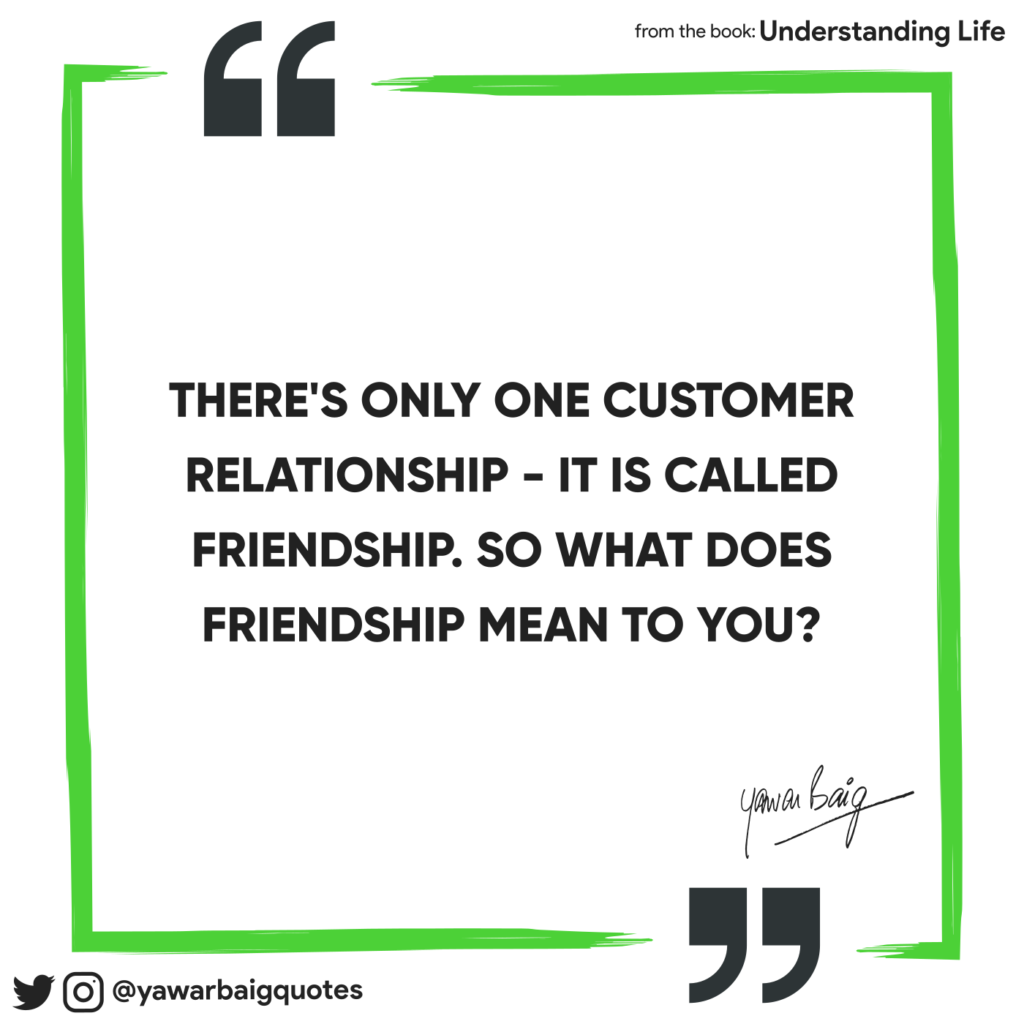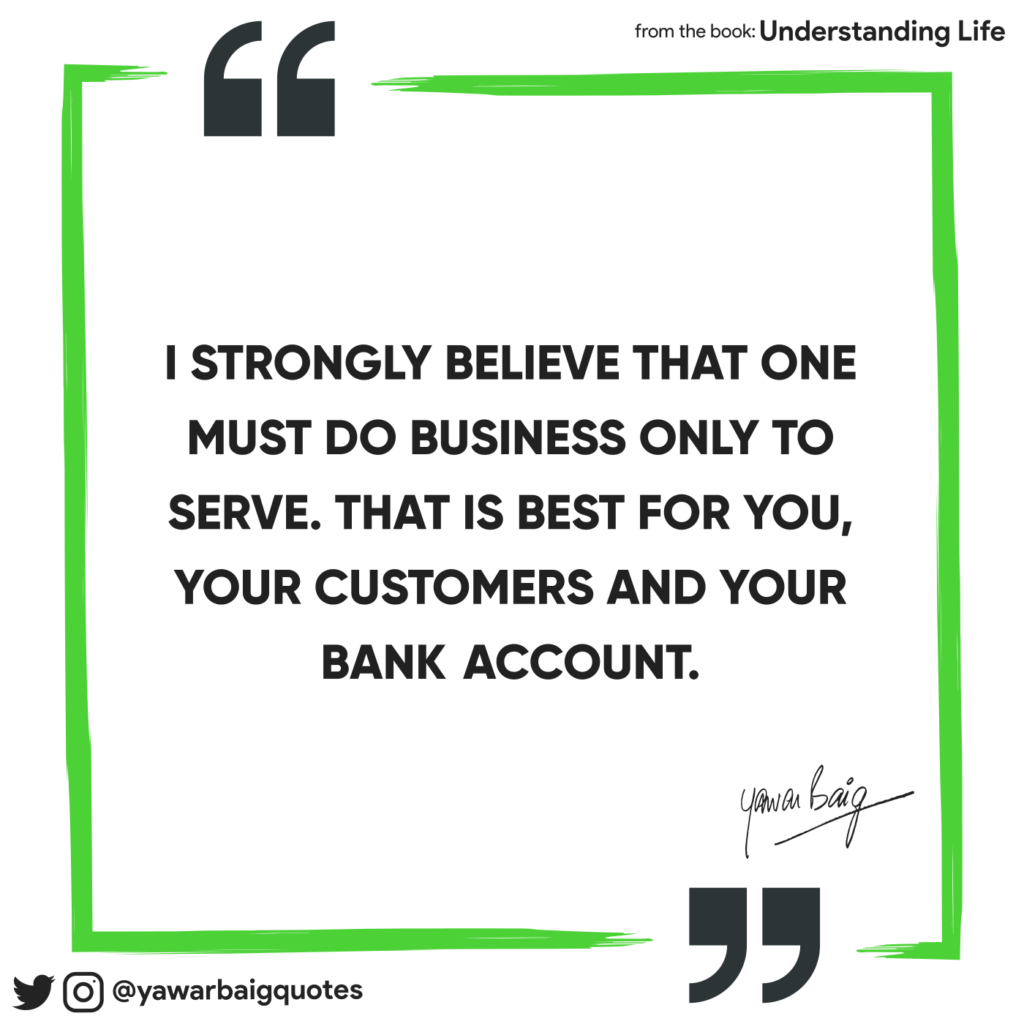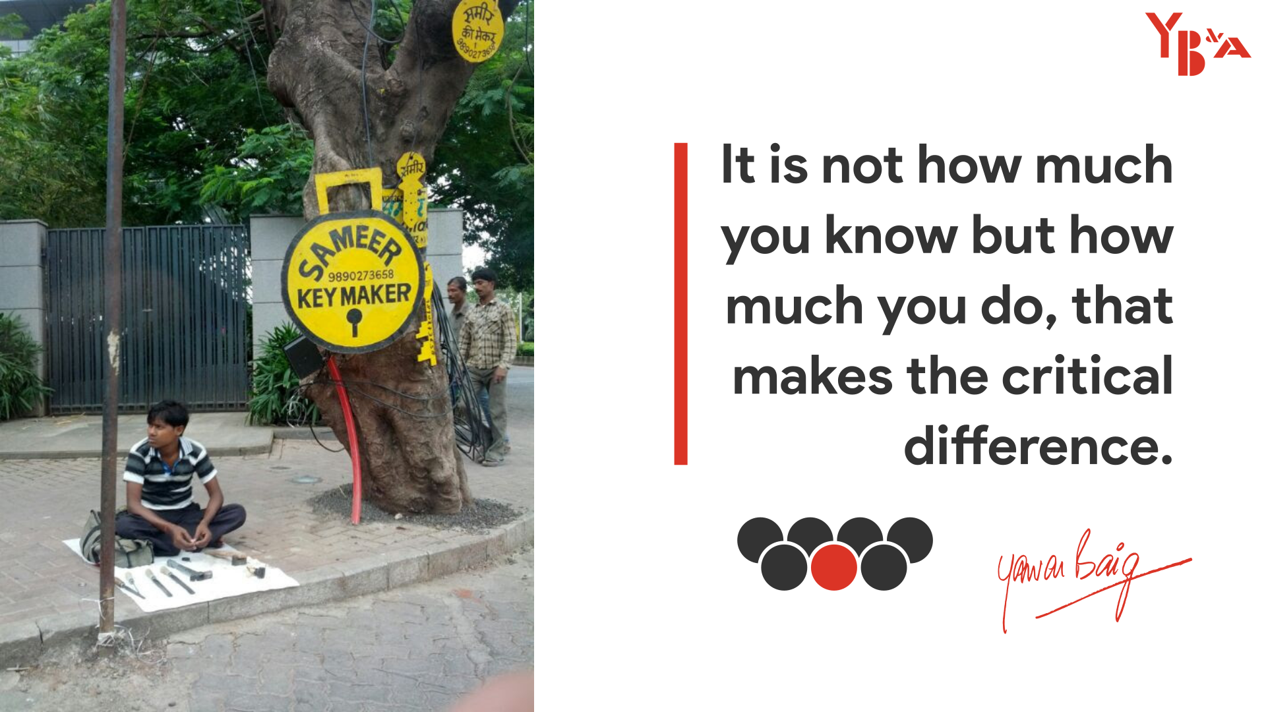I started my entrepreneurial journey in 1983 and set up my consulting company in 1994. A friend asked me if and how the challenges that entrepreneurs in 2025 face are different from those that I faced back then. In my view all entrepreneurs, irrespective of time, face two critical challenges. Neither has to do with the nature of the business but with being an entrepreneur, irrespective of which business you decide to go into. But they are critical to anticipate, prepare for and resolve satisfactorily if you want to succeed as an entrepreneur. I faced them. I will let you decide if anything has changed since then.
Dealing with ambiguity and uncertainty.
This is the biggest and literally a make-or-break challenge that every entrepreneur faces. Most come unprepared for it. To mentally switch from an assured income every month, no matter how small or large it may be, to, ‘I am free to earn as much as I want’, generates anxiety and fear, not contentment. Removing the safety net does that to the most expert trapeze artist. Let alone the first-time entrepreneur. Many, if not most, are unprepared and this comes as a shock. Ambiguity is certain. That sounds like an oxymoron but in the case of entrepreneurship it is completely true. The only thing that you can be sure of is butterflies in the stomach. The solution is to prepare. Mental preparation even more than material. Entrepreneurship is about emotional maturity. About growing up. About accepting responsibility for yourself, and your destiny. Anxiety is the wrapping of the package. When you say to yourself, ‘As much as I want’, what they don’t tell you is two things: One, it is not as much as I ‘want’, but as much as I ‘can do’. It is all about work. ‘Wanting’ is only the motivator. But it is work and only work that can yield results. The number of hours you spend on your startup is important but even more important is what you do in those hours. Your systems are more important than your expectations. Expectations are free. Systems take discipline, determination and backbreaking effort. But you do it because you believe it is worth it. Because to make your dream come true is important enough for you.
Two, that freedom is another name for owning responsibility. Freedom is not free from consequences of action. It means that you recognize that you are responsible for your actions and are consciously accepting that responsibility. We are all responsible for our actions anyway, but when you are an employee, you live in a Parent-Child bubble. You allow yourself to be conditioned to believe that the employer is responsible for your happiness and your role, like that of a child is to feel sad, glad, bad, mad. When you set out as an entrepreneur, you grow up. You break out of this fantasy and accept that what happens to you depends on what you do. That is a hugely empowering realization, because it means that if you want good things to happen to you, you don’t have to wait for someone on-high to grant them, but you can work to make them happen. If you can deal with that, you cannot fail. If not, you cannot succeed. So, the truth about entrepreneurship is that you can only have whatever you work for.

‘They’ don’t tell you that the only way you can get what you want is by working for it. But that doesn’t mean that you shouldn’t. I told myself that it is not ‘want’ but ‘can’. So, I needed to work my butt off if I wanted to succeed. And I did. That was not difficult for me because I had been used to working 18 – 20-hour days, 7 days a week for over three decades before I started out on my entrepreneurial journey. But this is critical. If you feel sleepy ask yourself which is more important, sleep or success. You can have both, but not at the same time. I want to say, ‘Not in the same lifetime.’ Just for perspective, 8 – hours/day is 33% of your lifespan. Anyone who is willing to give up that much for sleep wants to sleep more than to succeed. So, sleep.
The antidote to sleep is physical exercise. Especially aerobic exercise. Good for health, drives away sleep, depression, anxiety and helps you to think. Any time you need to think deeply about something, go for a long walk. Walking drives blood to the brain using the big muscles in the legs and you can think better. Running doesn’t do the same thing for thinking. But walking does. If you want to think, leave your earbuds at home. Otherwise walking can also be used to multitask usefully by listening to something beneficial as you walk. I like to listen to history and startup podcasts and find them very inspiring. So, all in all, walking is the best medicine. And what’s more, at the end of the day, you will sleep like a baby and get more goodness out of four hours than you would out of eight hours after sitting around all day. Make aerobic exercise a rigid part of your daily routine. In Bangalore, where I started my business, I would sometimes go to the gym at 10.00 PM because I had been teaching all day. But I never went to bed without hitting the gym first.
The second strategy is to create structure in your thinking and life. Make a timetable. No matter how nebulous. But have a timetable that you stick to. That is the key. To stick to the timetable. Today many people fall into the App-trap. Download an app and you think it will work for you. Guess what! It won’t. You still must work. I find the best ‘app’ is a simple notepad because as you write in it, your brain activates at a different level than tapping an app. This helps to develop the power of structured thought. First comes the thought, then the plan, then the action. If you want to work effectively, you must learn to think clearly. That means to think in a structured way. Working with a timetable is the best way to do that.
Here is a good way to start. Begin your day with a list of three things that you need to accomplish that day, in order of priority and define metrics for each. What is the minimum you need to accomplish? What does a star performance look like. Remember, this is to motivate you and give meaning to your effort, so it is very important to start with metrics. Priority is based on the immediate goal on your roadmap. This means that you have a clearly defined, written down goal which you have further broken down into short term goals. If you haven’t, first do this because priority is a function of goal clarity. Then start with the first goal and complete it, then go to the second goal. Don’t start with multiple goals simultaneously. If you are interrupted, return and complete that goal before going to the second goal. At the end of the day, evaluate your day based on the metrics you created for each goal. Make this into a hard-wired habit. Never start a day without a goal and metrics to measure accomplishment. Your life will become purposeful, and satisfaction guaranteed. This systematic approach is the best antidote for anxiety and depression.
Daily goal measurement gives you direction and metrics give you the satisfaction of achieving the goal. Set tough metrics. Remember that satisfaction is proportionate to the difficulty of the challenge. Set and accomplish difficult tasks if you want to feel highly satisfied. It won’t happen with easily achieved goals. Metrics also prevent us from fooling ourselves into thinking about how hard we worked and so on. If you can’t measure it, it didn’t happen. It doesn’t matter how hard you worked. You need to do more or different things the next day. The biggest failure trap is making excuses. Excuses don’t change reality. Failure won’t change to success because you have a good excuse for it. Excuses only prevent you from learning. Instead of making excuses, ask, ‘How did this happen and what can I do fix it and ensure that it never happens again?’ You can achieve great goals, or you can make excuses. But you can’t do both. So, decide early which you want to do. Metrics are indispensable for anyone who wants to achieve success. As Mikel Harry, the author of 6 Sigma Quality standard famously said, ‘If you want to see what someone values, see what they measure.’ Ask, ‘What do I value?’ Measure it.

Structured working and metrics also deal with anxiety and ambiguity because they act like guardrails for runaway imagination. We seem to be pre-programmed to think of worst-case scenarios which is pointless and debilitating. Structure keeps the mind focused on achieving immediate goals and gives meaning to the effort and the satisfaction of achieving it. This is energizing and encouraging.
Managing relationships.
Every ship needs a safe harbor to return to. That is your home and family. Ships are built to fight storms at sea. But if there is a storm brewing in the harbor, the ship will sink. A supportive family is therefore the most powerful of all resources. That will happen if they understand what you are doing and how that will benefit them in the future. Entrepreneurs are always short of time, and many treat the family like furniture. I like it, I need it, I use it, but I don’t maintain it until it breaks down. Many a potentially great enterprise suffered or came apart because a divorce was added to the cost. Worse than a divorce is a dead marriage which tries to pretend to be alive. Likewise for children. They need time and attention. Not only food and gadgets. Paying bills is the default but not enough by far.
My wife has always been my greatest supporter and be it from the time when one month after we go married she went off to stay with her parents for the next six months for me to complete my Executive MBA to living without any frills and taking no vacations for more than a decade because I used to spend all spare cash on traveling all over India to apprentice with senior behavioral trainers, she always supported me and encouraged me to work to realize my dream of becoming a ‘Globally recognized Leadership expert’. Without that support I wouldn’t have been able to do anything. That is why I want to emphasize the importance of building good relations with the family. You need to take off the work hat and put on the family person hat and play that role with equal sincerity and integrity, understanding that it is as important to entrepreneurial success as anything you do in the workplace, if not more.
Take the family into confidence. Set aside a time every week. Call it the ‘Family Council’. Create a little ritual around it. It must be at a specific time every week. Everyone must dress up for it because it is ‘work time’. Some food and drink. Some props to make a presentation, show a video and so on. And most importantly, take notes. Some people complain that the spouse and children don’t have the technical knowledge to understand your business plan or what you are doing. I say that is the best reason to speak to them because the best way to understand your plan is to explain it to a 5-year-old so that he understands it. If you can’t do that, it means you don’t understand it yourself.
Most importantly, managing cash-flows is a critical need when you start out as an entrepreneur. Especially if you had a salaried job, you had a regular stable cash-flow and planned your expenses based on that. But as an entrepreneur, cash comes in spurts. Some lean months and some months with plenty. That is why it is important to keep tight control over expenses. Make a budget and stick to that. Avoid all spontaneous buying. If you or any of the family members need anything create a culture of budgeting for it and then spending the money only at the agreed time. They should present their spending proposal to the Family Council which can decide on this. That way people get into the habit of looking at expenses as serious matters to be incurred only after due thought. It is a good way to keep everyone involved in the entrepreneurial journey and keep the focus on success. It helps people see how financial discipline is critical to success and prevents you from being seen as the stick in the mud for everyone. When people make decisions collectively, they take responsibility for them. Budgeting and planned spending also takes care of the anxiety that happens when you and your family realize that there is no paycheck at the end of the week or month. Saving and spending thoughtfully never hurt anyone.
Also in my experience, people who know nothing about the workings of a business bring a fresh, new, sometimes shocking perspective which the business founder may not see. Most business founders tend to get so caught up in the ‘what’ and ‘how’, that they lose focus on ‘Customer perception’. Remember, your customer looks more like your spouse and children than like you. It will be someone who not only doesn’t know how the thing works but is not even interested in learning. They are interested in using it if it can help them. That is what you must show them.
We used to call it VOC (Voice of Customer) in GE and had sessions where customers were invited to come and talk to us about how they experienced the GE product or service that they used. The listeners, GE people, had strict instructions to listen, take notes, and troubleshoot. Not to make explanations or excuses. Just listen and act. When you do this, the customer feels that he is important and his view valuable. VOC is a very powerful tool to retain customers as well as to make your customers your brand ambassadors.

So, test yourself. Talk to your family. Don’t talk down. Speak clearly. You may need to back up and explain some basics first. Or you may need to help them to focus on key financials and not get bogged down in complex spreadsheets. Any time you feel irritated about this, remind yourself that this is your test and your practice because, as I said before, your customers are going to be more like your family than like you. If one way doesn’t work, try another and another until you find the one that clicks. Ask them how you can help them understand and listen to them. They are your teachers. Leverage this market testing that is available to you right in your home. Be endlessly patient. Smile. Make it fun, like a game. Announce prizes. Say, ‘Here is what I am offering to the market. Tell me how you would sell it.’ Children, especially when they get an atmosphere that supports inventiveness and imagination, will come up with ideas you wouldn’t have been able to think of in a million years. Leverage that. It’s free. A huge benefit of this will be the bridging of the generation gap and improvement in your communication with your family. That alone is worth working for. Agreed?

Remind yourself that this time is not wasted at all. It is most invaluably spent in improving your ability to sell your ideas in a way that helps customers to see WiiFM (What’s in it For Me?). That is the most powerful sales technique for any product or service on the face of the earth. If you can show people what is in it for them, you don’t need to sell anything. They will beat a pathway to your door. Proof: Long lines of customers every time Apple announces a new phone. The best way to help customers to see WiiFM (What’s in it For Me?) is to ask them what they see as the benefit of the product or service. Not its features, or mechanics. But user benefits. Because if the user can’t see or use it, it is not there. Let the user tell you what they want and then you provide that.
In conclusion, I want to say that entrepreneurship is the logical psychological progression of the individual which marks his/her maturity as an adult who is willing to take responsibility for themselves and the world around them. Entrepreneurship with the right frame of reference represents all that is good about the human condition because it reflects not only the drive to do something good for oneself but also for others. Small and medium enterprises are the backbone of local society because their founders invest in the community and are dependent on it.
Small and Medium enterprises fund all kinds of local facilities and needs like schools, religious institutions, charities, health care, care for the elderly and so on. They source their needs locally; pay taxes locally and participate in local government. They provide employment to local people and build community. This is very different from huge global businesses which may be physically present in a place but employ outsiders and source all their requirements from global suppliers because they get better prices for bulk purchases. They participate minimally in local society, if at all.
When towns have thriving small businesses, the whole town thrives. And when local businesses die or are replaced by multinationals, we have ghost towns. Entrepreneurship therefore does a lot more than make money for the owner and his family. Entrepreneurship and entrepreneurs are the lifeblood of society. All power to those who have the courage to strike out on their own and stand on their own feet and help others up to do the same.

Comprehensive advice. Freedom means acting responsibly and time structuring are two thoughts which will stay with me. The problem with entrepreneurs is impatience and short sightedness. Excellent advice Sir, I am sharing this with my friends.
This brings to light all that we (including me) feel when we set out on the entrepreneurial journey. A taste of freedom and navigating the ambiguity while trying to structure one’s energy and time is a daily struggle. And it’s also lonely. thank you for the insights and I loved the quotes too!